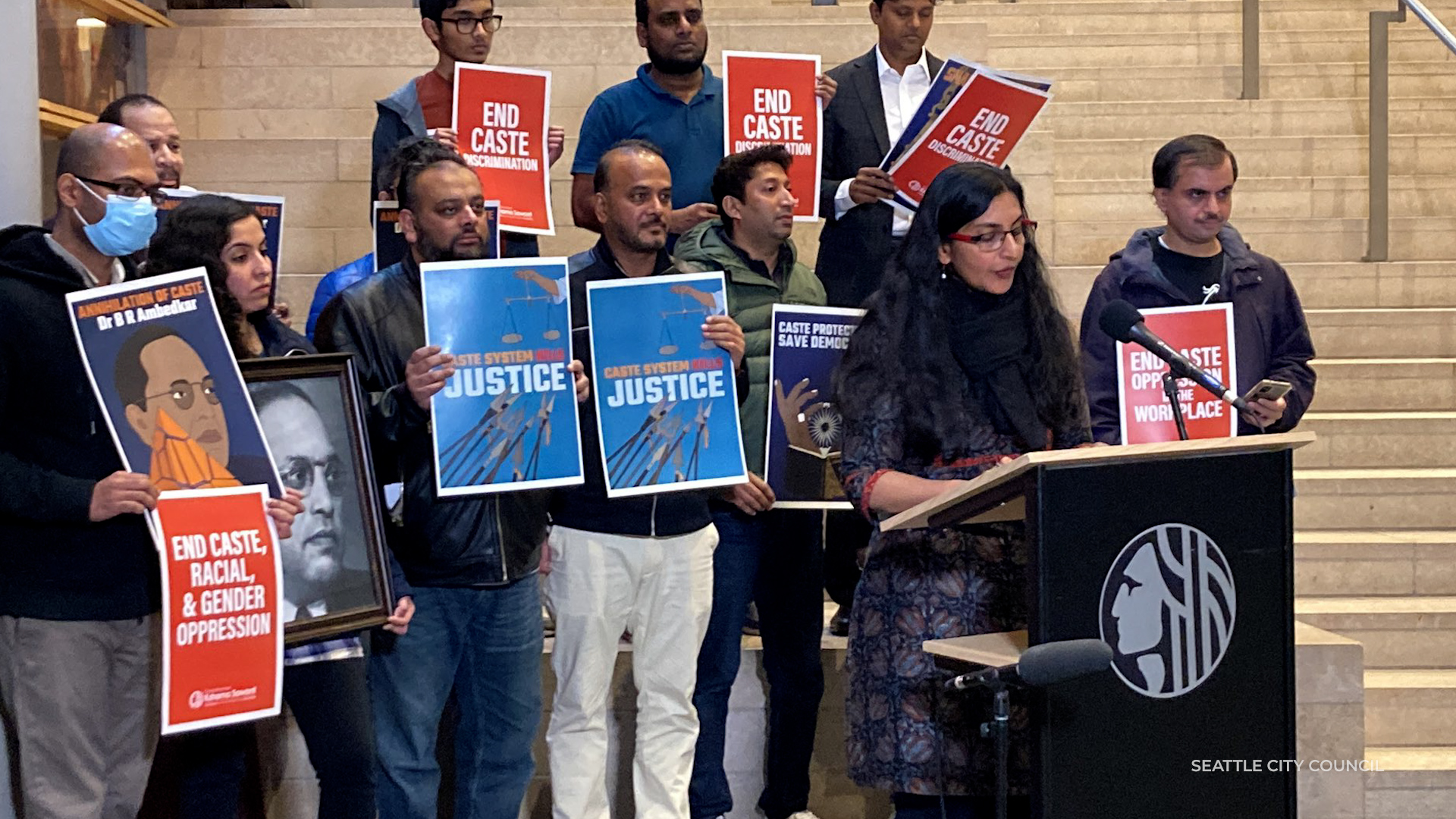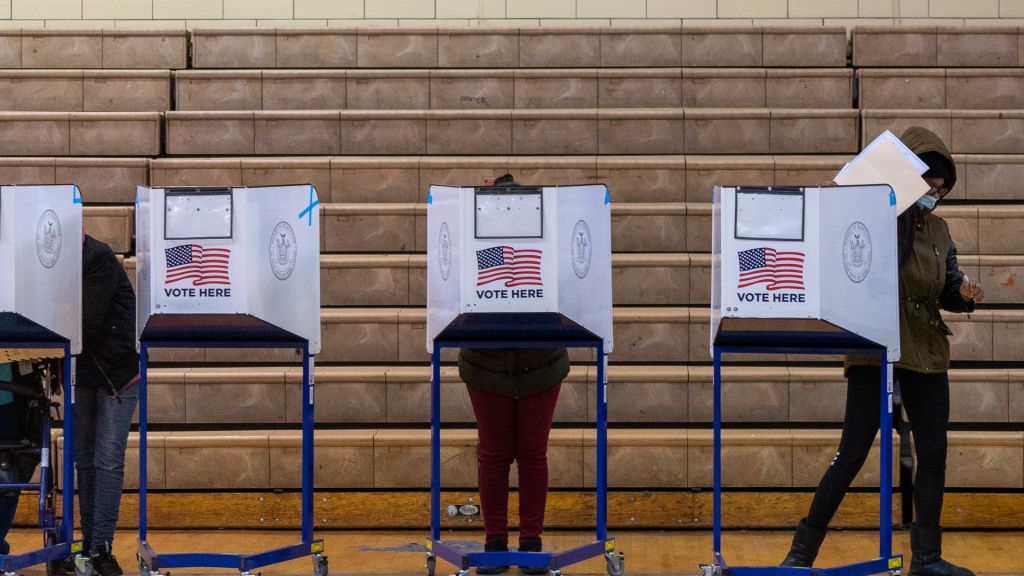
MAHMOUD BENNETT:
SEATTLE WASHINGTON HAS BECOME THE FIRST CITY IN THE US TO OUTLAW THE CASTE SYSTEM AND ADD IT TO THE CITY’S ANTI-DISCRIMINATION LAWS
THE MEASURE WAS PROPOSED BY KSHAMA SAWANT – A SEATTLE CITY COUNCIL MEMBER ORIGINALLY FROM INDIA – SHE BELIEVED THAT CURRENT ANTI-DISCRIMINATION LAWS WERE NOT ENOUGH SAYING QUOTE “caste DISCRIMINATION REMAINS A LARGELY HIDDEN AND UNREPORTED ISSUE.” THE MEASURE PASSED BY A 6-1 VOTE
HOWEVER, NOT EVERYONE WAS ON BOARD: SOME HINDU AMERICAN GROUPS ARGUE THE CASTE SYSTEM IS *ALREADY* COVERED UNDER CURRENT US ANTI-DISCRIMINATION LAWS, AND THAT THE BAN UNFAIRLY SINGLES OUT ETHNIC MINORITIES
THE CASTE SYSTEM IS WIDELY BELIEVED TO HAVE ORIGINATED IN ANCIENT HINDU SOCIETY SOME 3000 YEARS AGO BUT HAS EVOLVED OVER THE CENTURIES — AT ITS CORE, IT’S THE BELIEF IN SOCIAL HIERARCHY BASED ON ONE’S BIRTH AND DIVIDES PEOPLE INTO FOUR MAIN CATEGORIES BY PERCEIVED PURITY AND STATUS
UPPER AND LOWER CASTES TYPICALLY LIVED IN SEGREGATED COLONIES, AND WERE RESTRICTED FROM MARRYING OUTSIDE OF THEIR CASTE. THE SYSTEM ALSO DICTATED THE PROFESSIONS THAT A PERSON COULD WORK IN.
ALTHOUGH INDIA FORMALLY ABOLISHED THE SYSTEM IN 1950, NEARLY ALL INDIANS STILL IDENTIFY WITH A CASTE ACCORDING TO PEW RESEARCH.
AND WHILE THE MAJORITY OF INDIANS DO NOT PERCEIVE WIDESPREAD CASTE DISCRIMINATION TODAY, A 2016 UN REPORT SAYS AT LEAST 250 MILLION PEOPLE WITHIN VARIOUS DIASPORA COMMUNITIES OUTSIDE OF INDIA STILL FACE DISCRIMINATION BASED ON CASTE AND SIMILAR SYSTEMS
THAT’S ALL FOR THIS QUICK BREAKDOWN – I’M MAHMOUD BENNETT WITH STRAIGHT ARROW NEWS UNBIASED STRAIGHT FACTS






